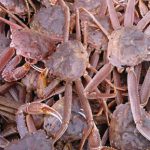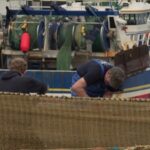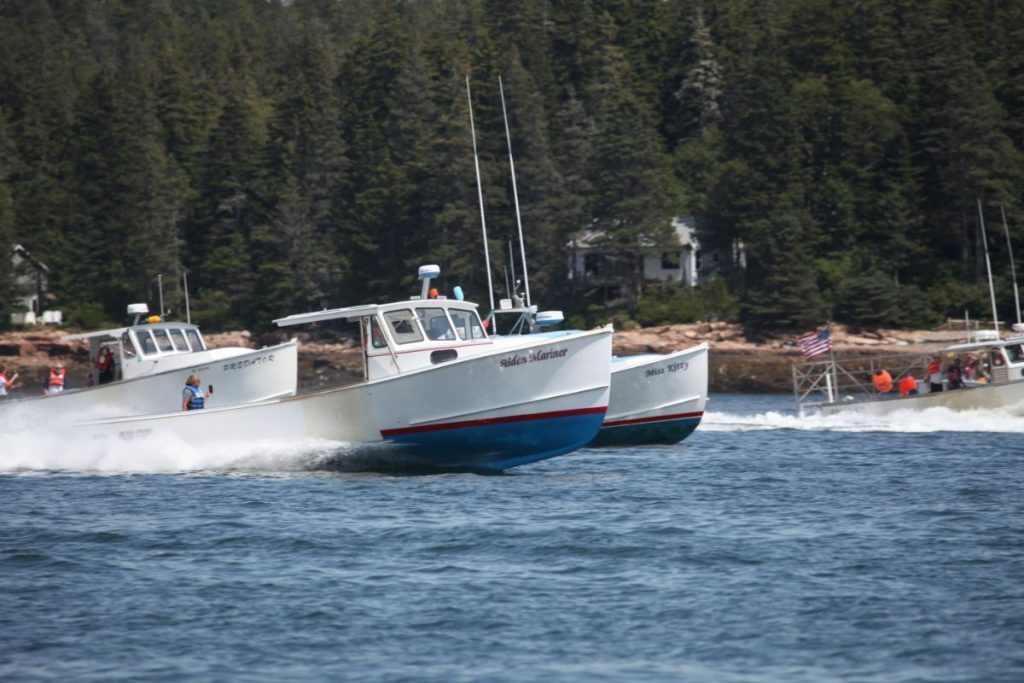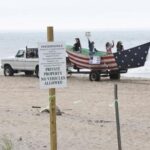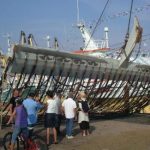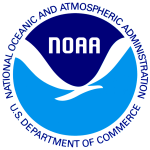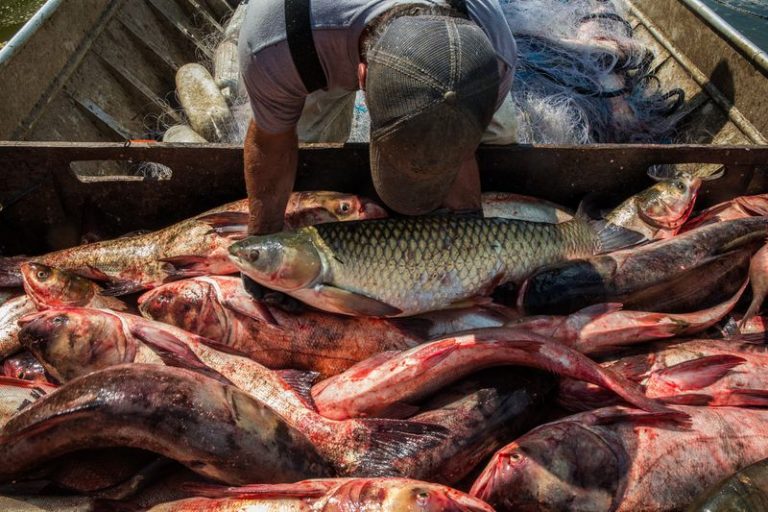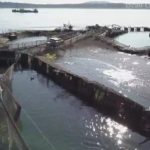Tag Archives: Pacific Salmon Commission
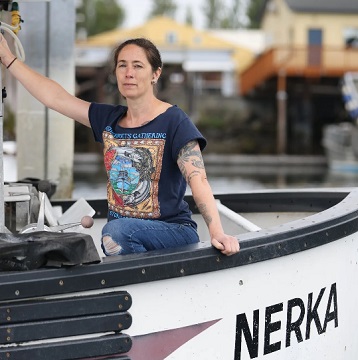
An Alaska fishery has been pitted against orcas. Can both survive?
In early May a Seattle federal judge put the brakes on this summer’s troll fishery in Southeast Alaska, ruling that the National Oceanic and Atmospheric Administration must amend its 2019 report on the impact of the fishing on endangered southern resident orcas who prefer to eat the same Chinook. But the ruling was put on hold last month by a U.S. appeals court, which allowed the fishery to reopen, citing economic harm. The complicated and contentious case probes the soft underbelly of the issue of the southern residents’ plight: the availability of nutrient-rich Chinook, their preferred meal. While fisheries up and down the West Coast are allocated fish for harvest each season, the southern residents get what’s left — and not intercepted by other predators. It has pitted fishers against orcas as some scientists and conservationists call into question the effectiveness of modern fisheries management. 9 photos, >click to read< 10:16
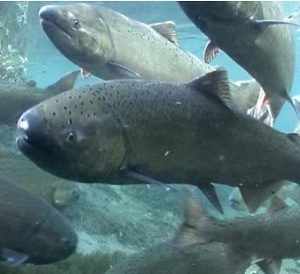
Chinook troll fishers in Southeast Alaska to put hooks in water July 1, but how many can they catch?
One day after the Ninth Circuit Court of Appeals overturned a Seattle judge’s ruling that had shut down the Southeast Alaska chinook troll fishery, the Alaska Department of Fish and Game delivered the catch limit news to the troll fishermen, specifying the number of kings they are allowed to catch during the upcoming season. Commercial trollers will have a total allocation of 74,800 chinook salmon during the first retention period, which begins July 1. Based on data from past years, the department thinks that the goal will be reached in 9-10 days, depending on weather. >click to read< 09:35
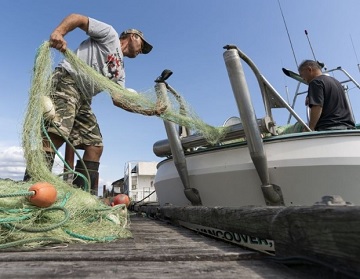
Poor Fraser River sockeye run spells end of the south coast salmon fleet
B.C. commercial fishermen are now forced to resign themselves to the reality that they will be shut out of the Fraser River sockeye fishery for the fourth year in a row, and for some that means the end of the road. “I think this is pretty much the end of the south coast salmon fleet,” said Dawn Webb, an organizer for the UFAWU-Unifor fisherman’s union. Earlier in the season, fairly strong returns of sockeye for the Skeena River, Barkley Sound and early Stuart Fraser River sockeye seemed to bode well for a healthy enough return to allow for a commercial opening this year. This is, after all, supposed to be a dominant year for Fraser River sockeye. >click to read< 07:34
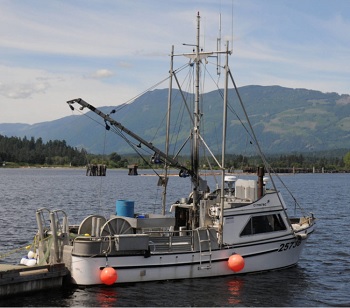
Commercial fisherman’s union concerned over Ottawa’s rejection of Pacific Salmon Commission recommendations
The commercial fisherman’s union has expressed its concerns over Ottawa’s recent rejection of the Pacific Salmon Commission’s (PSC) recommendations which were accepted by the U.S. The PSC’s recommendations, which advocate for a certain amount of commercial fishing, were presented to both countries after a review by fisheries experts from Canada and U.S, said UFAWU-Unifor in an Aug.19 statement. PSC’s mandate is to protect salmon stocks and has long been trusted to enforce the Pacific Salmon Treaty. “Despite PSC recommendations that would support a fishery, the Fraser River Panel announced that ‘all Canadian Panel Area waters remain closed to commercial salmon fishing,’ citing a precautionary approach,” stated the union in a media release. >click to read< 11:13
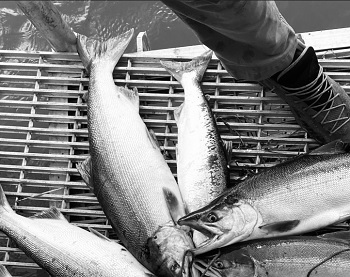
B.C. fishermen fume as their Americans counterparts fish
Commercial salmon fishers and environmentalists are crying foul, for opposite reasons after U.S. fisheries officials let American fishers hit the water while the Canadian government kept their counterparts ashore. After several years of historically low runs, the Pacific Salmon Commission (PSC), an international fisheries management organization, estimated last week that enough sockeye, about 4.4 million, would return to the Fraser River to support a commercial fishery. American fisheries managers adopted the commission’s estimate, opening a small commercial fishing window over the weekend. But in a rare disagreement, Canadian officials did not, citing concerns the run would be nearly one million fish smaller than predicted, and kept Canada’s waters closed. >click to read< 10:16
Concern for BC sockeye salmon as return estimates drop by millions – The Pacific Salmon Commission’s pre-season estimate of 9.8 million returning fish went down to 5.5 million Monday, prompting environmentalists and fishers alike to express concern. >click to read<
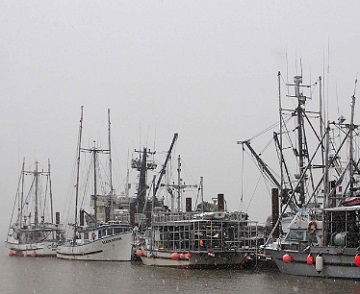
B.C. Commercial fishermen on tenterhooks
B.C. commercial fisherman, who had hoped for a green light today, now have to wait until next week for a go-ahead to fish for Fraser River sockeye, while American commercial fishermen are already catching sockeye. “They’re fishing on the American side, but we’re not fishing on the Canadian side,” said Mitch Dudoward, a commercial fisherman and spokesperson for the UFAWU-Unifor fishermen’s union. Returns so far appear to be healthy enough for a commercial opening this year, and fisherman had expected commercial openings to be announced today. But they now have to wait until Tuesday. >click to read< 9:16
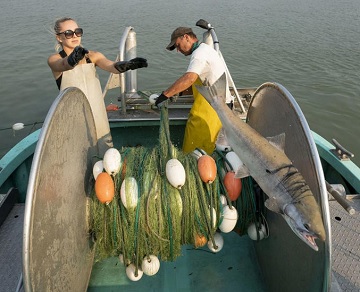
Strong sockeye salmon runs bode well for famed Fraser fishery
“The last bunch of years have just been nothing but doom and gloom when it comes to B.C. salmon,” said Granville-Island based fisher Steve Johansen, who just returned from “crazy” commercial fishing in Barkley Sound a week ago where sockeye returns were more than double Department of Fisheries and Oceans estimates. On the Skeena River, a key B.C. salmon river, returns have been 50 per cent higher than estimates. “I think everything else (that has) happened this summer before the Fraser runs is just making everybody’s anticipation and excitement just up a couple more notches,” Johansen said. >click to read< 12:50
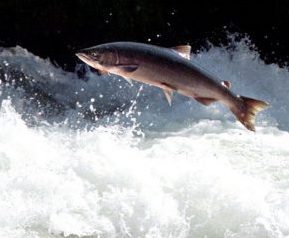
Fraser River sockeye fishery could be shut down for years
Fraser River sockeye, once the bread-and-butter of the commercial sector, appear to be collapsing for real this time. In 2009, low returns were described as a collapse, but the next year, Fraser River sockeye staged a major comeback, with 28 million fish returning, followed by 19 million in 2014. The Pacific Salmon Commission (PSC) estimates that only 283,000 sockeye may return to the Fraser River this year – a fraction of the 941,000 in a pre-season forecast, and only one-quarter of what is needed to meet this year’s escapement target. >click to read< 10:18
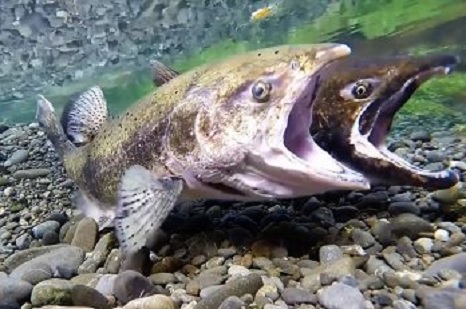
Sockeye Collapse: First Nations call for halt to B.C. salmon fishery on the Fraser River
First Nations leaders in British Columbia are calling for an emergency order from the federal government to close the sockeye salmon fishery on the Fraser River and declare it exhausted. “Without a doubt, it’s collapsed,” said Robert Phillips, an executive with the First Nations Summit and First Nations Leadership Council of B.C., in an interview with Global News on Wednesday. In an Aug. 14 report, the Pacific Salmon Commission projected a record low return this year, with just 283,000 salmon expected to make it to spawning grounds. It’s a less than a third of a projection in July, when as many as 940,000, >click tp read< 19:11
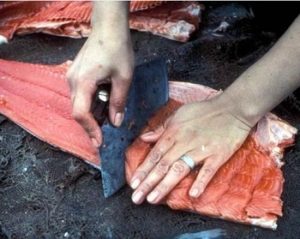
Alaska and B.C.’s salmon runs expected to be worst ever recorded
Salmon returns on the west coast look bleak this year. Alaska’s salmon returns have been so poor that some communities already are claiming fishery disasters. The socket salmon run on B.C.’s Fraser River is expected to be the worst ever recorded,, in Alaska, the Cordova City Council passed a resolution last week, asking the state to declare disasters for both the 2018 Copper River sockeye and chinook salmon runs and the 2020 sockeye, chum and chinook runs at the Copper River and Prince William Sound,, The Pacific Salmon Commission (PSC) says this year may turn out to be the worst for sockeye salmon in the Fraser River since tracking began in 1893, >click to read< 12:56
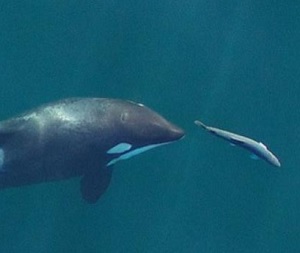
Judge weighs shutting down Southeast Alaska Chinook fishery
Fishermen in Southeast Alaska could see their season cut short if a federal judge issues an injunction requested by a Washington environmental group to protect the food supply of a subpopulation of orcas. The Wild Fish Conservancy filed a lawsuit against NOAA,,, “We are getting blamed for harvesting their food source, which really isn’t the cause of the problem,” Amy Daughery, executive director of the Alaska Trollers Association said. “The problem as we see it, is the exponential population growth in Seattle, which has lead to a lot of toxicity and pollution and habitat loss in that area. And so these whales are really struggling, this one population. The Northern killer whales that we see off the coast of Southeast Alaska are doing very well. In fact they’ve increased.” >click to read< 10:19
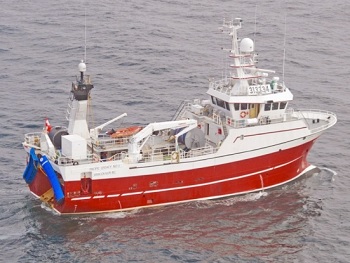
International Scientific Expedition to probe Pacific salmon survival
“While we recognize that ocean and climate conditions are major factors regulating salmon abundances, the mechanisms regulating abundances in the ocean are not known,” B.C. scientists Richard Beamish and Brian Riddell,, Scientists are seeking to provide more accurate forecasts of salmon returns during what Beamish and Riddell say might be the most difficult time in recent history for stewardship of Pacific salmon.,, The survey takes place as B.C. fishermen fear disastrous returns this year following poor returns for much of the coast last year. >click to read< 18:56
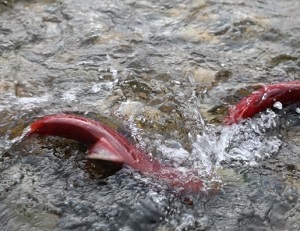
‘They’re flat broke’: Salmon fishermen demand disaster relief for failed season
The Pacific Salmon Commission is forecasting a total return of only 447,000 sockeye salmon to the Fraser, one of the world’s richest salmon rivers, this year. “This is the lowest run size ever estimated since estimates began in 1893, and lower than the previous record for lowest run size of 858,000 observed in 2016,” its report read.,, “Many of them are in debt because they got the boat and gear ready for the season and they [invested] quite heavily in doing that. And then they put fuel in their boats and went to the fishing grounds and then caught nothing.” >click to read< 15:24
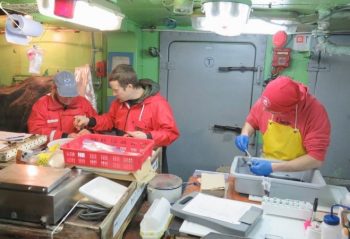
Salmon researchers seek funds for expanded expedition in 2020
Organizer Richard Beamish, emeritus scientist at Fisheries and Oceans Canada’s Pacific Biological Station in Nanaimo, is seeking $1.5 million from governments, the private sector and non-profit organizations — the same groups that funded his 2019 expedition. Next year’s survey would again be supported by the North Pacific Anadromous Fish Commission, an international organization based in Vancouver. The 2019 expedition was a signature project of the International Year of the Salmon program, which is backed by the Anadromous Fish Commission, as well as the North Atlantic Salmon Conservation Organization and other partners. >click to read<20:27
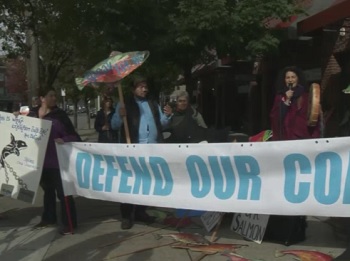
Protesters call for end to Chinook salmon fishing to save endangered orcas
Demonstrators concerned about the fate of the endangered southern resident killer whale population are calling for an end to all commercial fishing of Chinook salmon. There are just 74 of the southern residents remaining, and scientists say a lack of their primary food source, Chinook, is one of the key threats to their survival. On Wednesday, about a dozen protesters descended on Minister of Fisheries and Oceans Jonathan Wilkinson’s North Vancouver constituency office to call for change. Shirley Samples argued the government needs to ban all commercial and recreational Chinook fishing. “Why don’t we subsidize these fishermen? Why don’t we give them money so they can make it through this time when they have to forfeit fishing? There is a solution,”>click to read<10:20
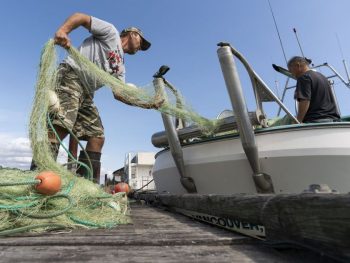
Fraser River sockeye salmon fishing bonanza to start next week
The Fraser River will open next week for its first sockeye salmon run of the season, in a year that is expected to bring in millions of fish for the first time in four years. For local fishermen, it’s better than Christmas. “Oh, we’re super excited,” said Richmond fisherman Roy Jantunen, hours after learning the Pacific Salmon Commission had announced a 24-hour opening from 7 a.m. Wednesday. Jantunen is preparing to go flat out for that full day, without any sleep, to maximize his catch. “It’s great news,” he said. “Last week, we were pulling out the nets and getting them ready. We haven’t used these nets in four years.” >click to read<08:08
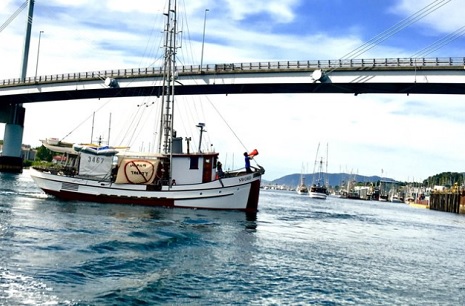
We can’t survive more cuts to Alaska king-salmon quota
Alaska salmon fisherfolk have been giving up a disproportionate portion of their harvest — over 50 percent, at least — to rebuild damaged stocks elsewhere. A few seasons ago in Chatham Strait, Karl Jordan, a third-generation Alaska salmon fisherman, came out to watch as I brought up an ashy-lipped, prismatic monster on the troll gear. Forty-five to 50 pounds. Spots on his tail an inky black. It was the second week of July, the king salmon opener just closed after we had caught our treaty quota. “Looks like a Columbia River hatchery fish,” Karl said. “Let him go.” If Karl was correct — and he usually is when it comes to fishing — that salmon had swum north from Washington’s Columbia River to spend its life in the Gulf of Alaska. >click to read<20:21
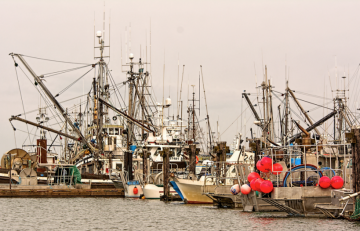
Pacific Salmon Treaty 3.0 looms for B.C. fishing industry
It has been nearly 20 years since a renegotiation of the Pacific Salmon Treaty with the U.S. sparked a war between the B.C. government, Ottawa and the U.S. That fight ended with Ottawa trying to expropriate a provincially owned seabed at Nanoose Bay – used for a joint Canadian-American submarine and torpedo test range – and generated such hostility that angry B.C. fishermen corralled an American ferry and held it hostage for two days in Prince Rupert in 1997.,,, The treaty expires at the end of this year. American and Canadian negotiators have been quietly working on its renewal for 18 months, said Brian Riddell, who is a Canadian commissioner to the Pacific Salmon Commission. >click to read<18:49
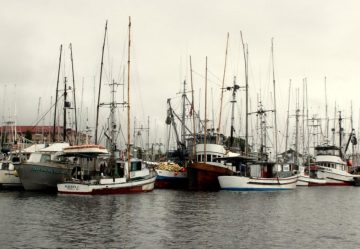
Forum to examine politics behind Alaska’s chinook conservation problem
Southeast salmon fishermen are pushing back against deep restrictions in the king harvest this season, saying the problem is as much political as it is biological. The fishing advocacy group Chinook Futures Coalition is holding a forum in Sitka this Wednesday afternoon (3 p.m. – 5 p.m. Wednesday, March 21, Harrigan Centennial Hall) to shed light on how negotiations with Canada have disadvantaged Alaskan fishermen — even as the state works to address a serious conservation problem.>click to read< 21:19
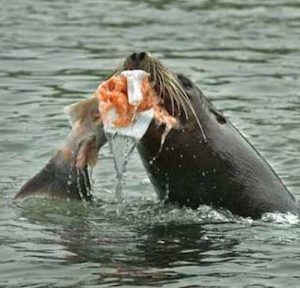
Endangered orcas compete with seals, sea lions for salmon
Harbor seals, sea lions and some fish-eating killer whales have been rebounding along the Northeast Pacific Ocean in recent decades. But that boom has come with a trade-off: They’re devouring more of the salmon prized by a unique but fragile population of endangered orcas. Competition with other marine mammals for the same food may be a bigger problem than fishing, at least in recent years, for southern resident killer whales that spend time in Washington state’s Puget Sound, a new study suggests. click here to read the story 07:43
Warm water blamed for lowest sockeye salmon run on record
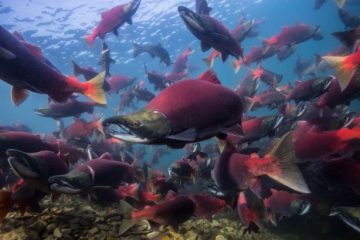 Warm summer temperatures may have Lower Mainlanders feeling good, but they are proving lethal for sockeye salmon. The Pacific Salmon Commission recently revised its already low forecast for sockeye numbers from 2.3 million to 1.1 million in the Fraser River, which would be the lowest number since records have been kept. As of August 12, the DFO has suspended all sockeye fisheries in response. John Reynolds, professor of aquatic ecology and conservation at Simon Fraser University, said three main factors are contributing to this year’s low numbers: a small parental generation; a “blob” of warm water in the Pacific Ocean; and higher-than-normal temperatures in the Fraser River. Sockeye spawn over a four-year cycle, and Reynolds said the last cycle’s already low numbers meant low numbers were a distinct possibility for this year. Read the rest here 11:39
Warm summer temperatures may have Lower Mainlanders feeling good, but they are proving lethal for sockeye salmon. The Pacific Salmon Commission recently revised its already low forecast for sockeye numbers from 2.3 million to 1.1 million in the Fraser River, which would be the lowest number since records have been kept. As of August 12, the DFO has suspended all sockeye fisheries in response. John Reynolds, professor of aquatic ecology and conservation at Simon Fraser University, said three main factors are contributing to this year’s low numbers: a small parental generation; a “blob” of warm water in the Pacific Ocean; and higher-than-normal temperatures in the Fraser River. Sockeye spawn over a four-year cycle, and Reynolds said the last cycle’s already low numbers meant low numbers were a distinct possibility for this year. Read the rest here 11:39
Fraser River sockeye run may be a no-go for local fishermen
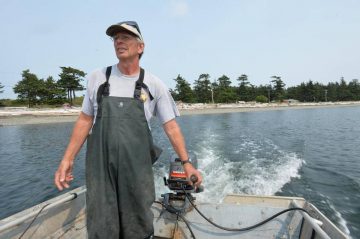 With fish counts remaining extremely low, it’s looking less likely that local commercial and tribal fishermen will get a chance to catch Fraser River sockeye salmon this summer. Fishermen in Canada and the U.S. have been waiting for the green light from the Pacific Salmon Commission to begin fishing for sockeye that are returning to the Fraser River in lower British Columbia. In its most recent assessment on Friday, Aug. 5, the sockeye run remains below expectations and the river remains warmer than normal, both factors in not opening the run. It’s not a surprising result, but still disappointing to fishermen like Pete Granger, who works for Lummi Island Wild. This is a crucial part of the run and if the numbers don’t improve in the next couple of weeks, the season will be lost, he said. Read the story here
With fish counts remaining extremely low, it’s looking less likely that local commercial and tribal fishermen will get a chance to catch Fraser River sockeye salmon this summer. Fishermen in Canada and the U.S. have been waiting for the green light from the Pacific Salmon Commission to begin fishing for sockeye that are returning to the Fraser River in lower British Columbia. In its most recent assessment on Friday, Aug. 5, the sockeye run remains below expectations and the river remains warmer than normal, both factors in not opening the run. It’s not a surprising result, but still disappointing to fishermen like Pete Granger, who works for Lummi Island Wild. This is a crucial part of the run and if the numbers don’t improve in the next couple of weeks, the season will be lost, he said. Read the story here
Fraser River pink salmon run a poor haul for U.S. fishermen
 The fishery for Fraser River pink salmon has ended for local U.S. fishermen — one marked by low catches here but another record run in parts of Alaska that helped push down prices. “We’re stuck with low price and low production. It is a horrible combination,” said Pete Granger, a reefnetter who fishes in Legoe Bay. Fraser River pink runs occur in odd years, and commercial fishermen who went out this year thought they would have a good season, given the Pacific Salmon Commission of 14.4 million. That estimate was based on the abundance of fry that went into the ocean two years ago. Then during the season,,, Read the rest here 07:36
The fishery for Fraser River pink salmon has ended for local U.S. fishermen — one marked by low catches here but another record run in parts of Alaska that helped push down prices. “We’re stuck with low price and low production. It is a horrible combination,” said Pete Granger, a reefnetter who fishes in Legoe Bay. Fraser River pink runs occur in odd years, and commercial fishermen who went out this year thought they would have a good season, given the Pacific Salmon Commission of 14.4 million. That estimate was based on the abundance of fry that went into the ocean two years ago. Then during the season,,, Read the rest here 07:36
The Pacific Salmon Commission meet’s today to provide an in-season assessment of the pink and sockeye runs.
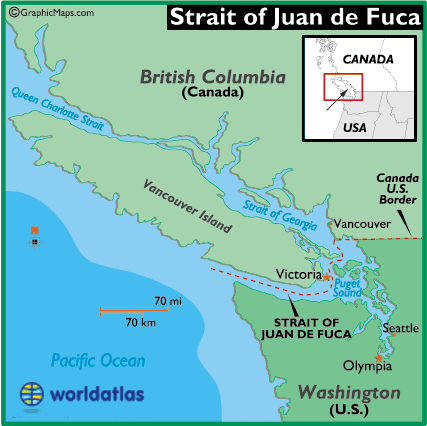 The test gill-net fishing in the Strait of Juan de Fuca began this week, and not much has been revealed just yet to get an idea of pink and sockeye run strength. Two test boats on Wednesday, July 15 netted 163 sockeye, seven coho, three chinook, one chum and two steelhead. The Fraser River Panel of the Pacific Salmon Commission has developed management plans for 2015 Fraser River sockeye and pink salmon fisheries in Panel Area waters. Fisheries and Oceans Canada (DFO) provided forecasts of Fraser River sockeye and pink salmon abundance,,, Read the rest here 10:37
The test gill-net fishing in the Strait of Juan de Fuca began this week, and not much has been revealed just yet to get an idea of pink and sockeye run strength. Two test boats on Wednesday, July 15 netted 163 sockeye, seven coho, three chinook, one chum and two steelhead. The Fraser River Panel of the Pacific Salmon Commission has developed management plans for 2015 Fraser River sockeye and pink salmon fisheries in Panel Area waters. Fisheries and Oceans Canada (DFO) provided forecasts of Fraser River sockeye and pink salmon abundance,,, Read the rest here 10:37
Alaska Trollers Outraged by Low King Salmon Quota Set by Pacific Salmon Commission
 Members of the Alaska Trollers Association are expressing outrage that the Pacific Salmon Commission (PSC) has capped Alaska’s harvest of king salmon this summer at 237,000 fish. With the summer troll season set to begin this week, trollers are caught in a technical dispute among commission members over how many king salmon are expected to return to spawn in rivers along the West Coast. The Pacific Salmon Commission implements the U.S.-Canada Pacific Salmon Treaty, which governs how many king salmon can be caught by Canada and Alaska. Read the rest here 20:33
Members of the Alaska Trollers Association are expressing outrage that the Pacific Salmon Commission (PSC) has capped Alaska’s harvest of king salmon this summer at 237,000 fish. With the summer troll season set to begin this week, trollers are caught in a technical dispute among commission members over how many king salmon are expected to return to spawn in rivers along the West Coast. The Pacific Salmon Commission implements the U.S.-Canada Pacific Salmon Treaty, which governs how many king salmon can be caught by Canada and Alaska. Read the rest here 20:33
Record Numbers Of Salmon And Orcas Flood Pacific Coast
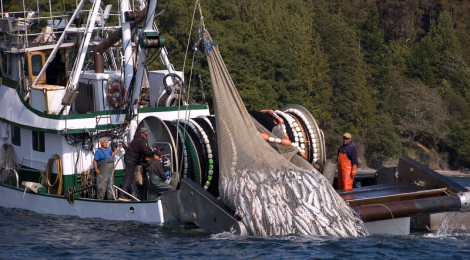 Record numbers of salmon, sockeye salmon, in never before seen abundance are swimming into the Strait of Georgia in British Columbia according to the numbers published by the Pacific Salmon Commission. The rate at which the prized sockeye are arriving is 170% of that of the previous record year of 2010 arrived more than 34 million strong. (Note: The 34 million number is the “official count,” the total number of fish returning is normally said to be 20% higher than the “official count.” Thus in 2012 upwards of 40+ million sockeye likely made it home.) Read more here 18:39
Record numbers of salmon, sockeye salmon, in never before seen abundance are swimming into the Strait of Georgia in British Columbia according to the numbers published by the Pacific Salmon Commission. The rate at which the prized sockeye are arriving is 170% of that of the previous record year of 2010 arrived more than 34 million strong. (Note: The 34 million number is the “official count,” the total number of fish returning is normally said to be 20% higher than the “official count.” Thus in 2012 upwards of 40+ million sockeye likely made it home.) Read more here 18:39
Mine spill ‘unlikely’ to harm spawning Fraser sockeye
The Mount Polley mine tailings pond spill is “unlikely” to significantly harm Fraser River sockeye now returning to spawn in fouled Quesnel Lake, according to the Pacific Salmon Commission. <Read more here> 13:41
More nets seized as Fisheries’ patrols enforce Fraser fishing ban – 10 nets pulled up; one person under investigation after weekend patrols
![]() Fishery officers pulled up 10 more illegal nets in a weekend of patrolling on the Fraser River, where a total ban on fishing for summer sockeye remains in effect. Another person is being investigated for Fisheries Act violations, bringing the total to 28, along with nine vessels and 60 nets seized since the ban was ordered earlier this month. more@vancouversun 23:20
Fishery officers pulled up 10 more illegal nets in a weekend of patrolling on the Fraser River, where a total ban on fishing for summer sockeye remains in effect. Another person is being investigated for Fisheries Act violations, bringing the total to 28, along with nine vessels and 60 nets seized since the ban was ordered earlier this month. more@vancouversun 23:20
Sparse Fraser River sockeye run is an echo of 2009
 Four years after a salmon run so disastrous it sparked a federal inquiry, fisheries managers are watching with concern as sockeye trickle into the Fraser in lower numbers and later in the season than anticipated. @globeandmail
Four years after a salmon run so disastrous it sparked a federal inquiry, fisheries managers are watching with concern as sockeye trickle into the Fraser in lower numbers and later in the season than anticipated. @globeandmail






 The Pacific Salmon Commission and the Southern Fund Committee announced Thursday that the funding over five years will support the Salish Sea Marine Survival Project, an effort by Canada and the U.S. “to improve understanding of the causes of salmon and steelhead mortality” in the Strait of Georgia, Puget Sound and Juan de Fuca Strait.
The Pacific Salmon Commission and the Southern Fund Committee announced Thursday that the funding over five years will support the Salish Sea Marine Survival Project, an effort by Canada and the U.S. “to improve understanding of the causes of salmon and steelhead mortality” in the Strait of Georgia, Puget Sound and Juan de Fuca Strait. 


























